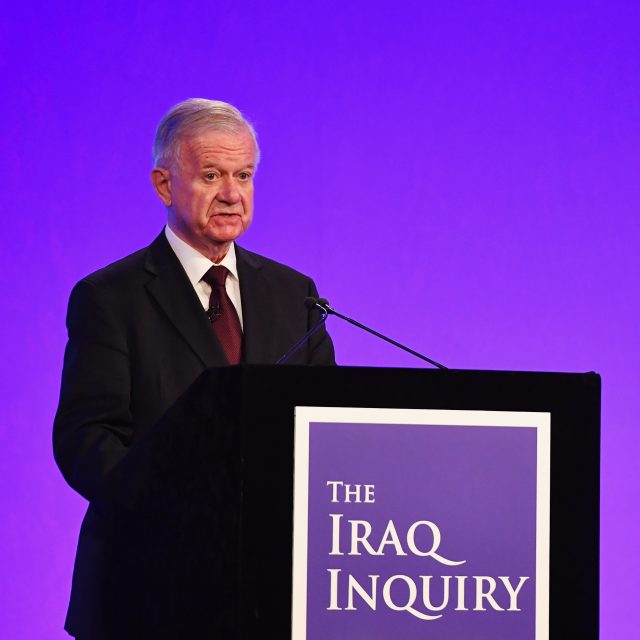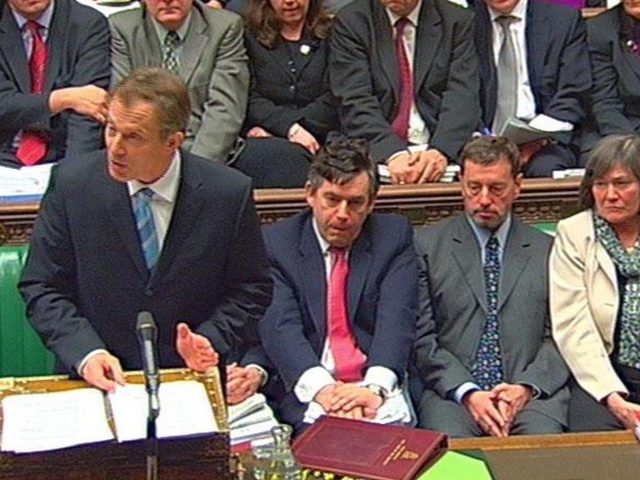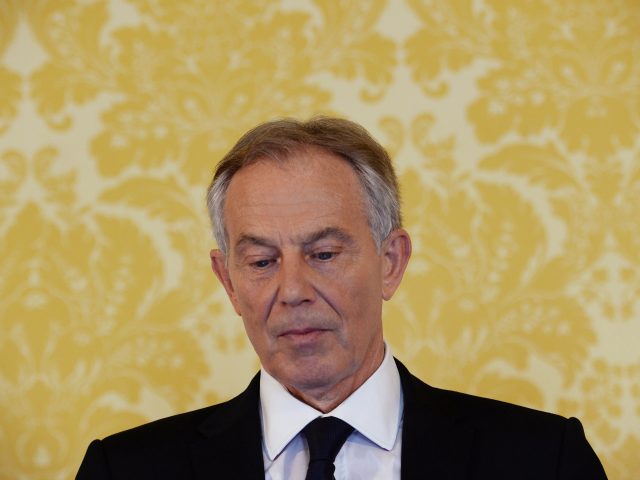
Sir John Chilcot has said he does not believe Tony Blair was “straight with the nation” about his decisions in the run-up to the Iraq War.
In an interview with the BBC on the anniversary of his report into the 2003 conflict, Sir John said the former prime minister had been “emotionally truthful” in his account of events leading up to the conflict.
But he suggested Mr Blair – who once described himself as “a pretty straight sort of guy” – relied on “belief” rather than “fact”.
Mr Blair’s office accused the BBC of putting words in Sir John’s mouth, and insisted that the full interview showed that the former Whitehall mandarin did not think he had “departed from the truth”.
“The BBC headline stems from words put into John Chilcot’s mouth by the interviewer,” said a spokeswoman for the former prime minister.
“A full reading of the interview shows that Sir John makes clear that Mr Blair had not ‘departed from the truth’.
 Sir John Chilcot presented his report a year ago (Jeff J Mitchell/PA)
Sir John Chilcot presented his report a year ago (Jeff J Mitchell/PA)
“Sir John also makes clear that on the eve of the invasion Mr Blair, ‘asked the then Chair of the Joint Intelligence Committee, can you tell me beyond any reasonable doubt that Saddam has weapons of mass destruction. To which the answer was, yes I can. He was entitled to rely on that’.
“Five different inquiries have all shown the same thing: that there was no falsifying of the intelligence.”
Speaking to the BBC, the chair of the inquiry into the Iraq War was asked if Mr Blair was as truthful with him and the public as he should have been.
“Any prime minister taking a country into war has got to be straight with the nation and carry it, so far as possible, with him or her,” he replied. I don’t believe that was the case in the Iraq instance.”
 Tony Blair addressed MPs in March 2003, as British and American forces stood ready for war in Iraq (PA)
Tony Blair addressed MPs in March 2003, as British and American forces stood ready for war in Iraq (PA)
Released last year after seven years of investigation, the Chilcot Report found that former Iraqi dictator Saddam Hussein posed ”no imminent threat” at the time of the invasion of his country in 2003 and the war was fought on the basis of “flawed” intelligence.
While giving evidence to the inquiry, Mr Blair denied he had taken the country to war on the basis of a “lie” over Saddam’s supposed weapons of mass destruction.
Asked if he felt Mr Blair had given the fullest version of events to the inquiry, Sir John said: “I think he gave an – what was – I hesitate to say this, rather, but I think it was, from his perspective and standpoint, emotionally truthful and I think that came out also in his press conference after the launch statement.
“I think he was under – as you said just now – very great emotional pressure during those sessions … He was suffering. He was deeply engaged. Now in that state of mind and mood you fall back on your instinctive skills and reactions, I think.”
 Tony Blair defended his decisions which led to the Iraq war, in an emotional press conference after the Chilcot report was published (Stefan Rousseau/PA)
Tony Blair defended his decisions which led to the Iraq war, in an emotional press conference after the Chilcot report was published (Stefan Rousseau/PA)
In a now infamous claim, Mr Blair told MPs that Saddam Hussein was developing weapons of mass destruction, and later said intelligence showed the Iraqi tyrant could deploy chemical and biological weapons within 45 minutes.
Sir John’s report found Mr Blair presented the case for war with “a certainty which was not justified” based on “flawed” intelligence about the country’s supposed weapons of mass destruction (WMD) which was not challenged as it should have been.
Asked if was “exaggerated”, Sir John replied: “He found – I don’t know whether consciously or not – a verbal formula in the dossier and his foreword to it.
“He said – and used it again later – ‘I believe the assessed intelligence shows beyond doubt.’ Pinning it on my belief, not on the fact, what the assessed intelligence said.”


Why are you making commenting on The Herald only available to subscribers?
It should have been a safe space for informed debate, somewhere for readers to discuss issues around the biggest stories of the day, but all too often the below the line comments on most websites have become bogged down by off-topic discussions and abuse.
heraldscotland.com is tackling this problem by allowing only subscribers to comment.
We are doing this to improve the experience for our loyal readers and we believe it will reduce the ability of trolls and troublemakers, who occasionally find their way onto our site, to abuse our journalists and readers. We also hope it will help the comments section fulfil its promise as a part of Scotland's conversation with itself.
We are lucky at The Herald. We are read by an informed, educated readership who can add their knowledge and insights to our stories.
That is invaluable.
We are making the subscriber-only change to support our valued readers, who tell us they don't want the site cluttered up with irrelevant comments, untruths and abuse.
In the past, the journalist’s job was to collect and distribute information to the audience. Technology means that readers can shape a discussion. We look forward to hearing from you on heraldscotland.com
Comments & Moderation
Readers’ comments: You are personally liable for the content of any comments you upload to this website, so please act responsibly. We do not pre-moderate or monitor readers’ comments appearing on our websites, but we do post-moderate in response to complaints we receive or otherwise when a potential problem comes to our attention. You can make a complaint by using the ‘report this post’ link . We may then apply our discretion under the user terms to amend or delete comments.
Post moderation is undertaken full-time 9am-6pm on weekdays, and on a part-time basis outwith those hours.
Read the rules hereLast Updated:
Report this comment Cancel